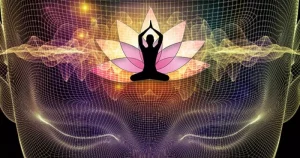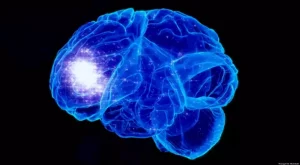Discover 4 Benefits of Meditation
4 Benefits of Meditation
A lot of people have this idea that meditation means sitting down and doing nothing. But that’s not true. It is an active training of the mind to increase awareness and improve brain function. There is growing evidence that meditation can enhance cognition. Studies have shown the effects of it to alleviate stress, relieve chronic pain, ease anxiety, fight addiction, improve sleep, and increase overall happiness levels. It is essentially the mind's superpower.
Even the Dalai Lama has been working closely with neuroscientists to study the effects of meditation on the brain, and the results have been nothing but positive! This is what he has to say on the subject: “All human beings have an innate desire to overcome suffering, to find happiness. Training the mind to think differently, through meditation, is one important way to improve happiness.”
From physical to social to cognitive benefits, there are so many ways in which meditation can help improve your everyday life.
Meditation Strengthens the Brain's Emotional Command & Control Center: The Prefrontal Cortex
Once upon a time, your brain was wired very differently. The amygdala, our fear center, came in handy when determining danger. Our amygdala became extremely developed and unfortunately still remains this way today. This is often referred to as the “caveman” brain. The problem is, since we no longer need to run from predators, our amygdala will often take problematic thoughts like “I am going to be late for work” or “rent is due soon” and turn them into very real feelings of fear. This is essentially the basis for anxiety disorders. With an overwhelming amount of studies pointing to stress as the #1 cause of disease, figuring out a way to downsize our primitive amygdala is critical to the future of mankind.
But there is good news, there is a way to re-wire your caveman's brain. This is done through the development of the prefrontal cortex. How do you develop the prefrontal cortex you might ask? You guessed it: Meditation! Once upon a time, scientists believed that we were born with limited cognitive complicity in our brains. We now know that this isn’t true. In fact, we can develop, grow, and rewire our brains completely, this is known as Neuroplasticity. Blowing away decades of scientific beliefs, the recently discovered "neuroplastic" nature of the brain means that our potential is not set at birth. In fact, we can actually strengthen our brains in ways we never thought possible. So far, the biggest proven method is meditation.
Essentially, through meditation, we can shrink our amygdala and grow our prefrontal cortex. By doing this we can significantly reduce both mental stressors and physical diseases. In turn making us less aggressive, worried, and overall happier. Meditation can literally help evolve humanity into a more peaceful state of thinking, how cool is that?
Physical Benefits of Meditation
Enhances the Immune System
It has been scientifically proven to increase activity in the prefrontal cortex, the right hippocampus, and the right anterior insular parts of the brain. Aside from the emotional aspects of these parts, they are also involved in the regulation of the immune system. It was found that individuals who practiced meditation on a weekly basis had a much higher concentration of antibodies than those who did not. The importance of antibodies in the fight against bacteria is so vital to our overall health.
Relieves Chronic Pain
It has been shown to help with muscle tension and strain. As the mind falls into a state of awareness through focused attention and controlled breathing, the body falls into a deeply relaxed state. As your breathing expands, the cells relax and proper oxygen flow is able to nourish and replenish your stressed muscles. This allows the body to release tension and for the muscles to heal. This will ultimately result in an overall sense of well-being that can be felt throughout the entire body. Many people will report an increased energy boost as well.
*(Obviously, if you are seriously injured, please see a medical professional)
Aids in Digestion
Meditation significantly helps people with inflammatory diseases such as IBS, acid reflux, food intolerance, constipation, peptic ulcers, and more. Many have reported increased effectiveness of digestion, less anxiety about their condition, and an overall increase in quality of life. This is because digestion uses a lot more energy and when your body goes into the "fight or flight" state, digestion is forcibly shut down so that our energy resources can be directed elsewhere. Once the body can fully relax, digestion will naturally balance itself out.
Lowers Blood Pressure
It’s no secret that stress causes high blood pressure and constricted blood cells. This prolonged strain can lead to depression, exhaustion, and reliance on harmful medications. Controlled breathing allows the body to produce high levels of nitric oxide. This helps to open up constricted blood vessels, and ultimately causes a reduction in blood pressure.
Psychological Benefits Of Mediation
Anxiety, Depression and other Cognitive Disorders
Numerous scientific studies have found that it is to be effective in treating anxiety.
Anxiety might seem like constant racing thoughts; and while yes, this is true, but at times it can be so much more. Anxiety can manifest itself in a very physical way. It can incapacitate a person and often leave them feeling lost and disoriented.
Also helps with this problem by quieting the overactive mind. Instead of focusing on scary thoughts, you can identify and correct them. This is done by letting the thoughts pass naturally without evoking an emotional response. Instead, you focus on your breath and the space between them.
In fact, this technique can be widely used for a number of cognitive disorders, including Bipolar disorder.
Meditation was found to be an effective way to treat anxiety and depression as an alternative antidepressant therapy. Medications like (SSRIs) boost serotonin. However, so does meditation, but naturally. We are just now becoming aware of the vast benefits of a well-balanced brain; this highly advanced mind-state provides boosts of serotonin. Serotonin is widely regarded as the most important brain chemical for anyone who suffers from anxiety, depression, and BPD.
Improves Sleep
Meditation can be an effective way to calm the mind before bedtime and to improve sleeping disorders. Once you learn to meditate properly, you will know how to relax instantly. This technique will help you relax and fall asleep within seconds. Whether meditation can actually replace sleep or reduce the amount of sleep you need is still up for debate. But it can definitely help calm that racing mind.
Meditation Can Help with Addictions

Given its effects on the self-control regions of the brain, it can be very effective for people recovering from different types of addiction. This can be anything from drug addiction, smoking, to overeating.
When we practice mindfulness, we recognize and accept all feelings, from discomfort to joy. We accept them graciously, then we let them pass. It helps reduce the state of craving from the act itself. When you fully experience the craving without acting on it, you essentially ride out the “wave” of craving, until it passes. In fact, this is a specific type of mediation called urge surfing.
Research confirms that meditation has been proven to counteract addicting impulses. Especially when it is combined with mindfulness-based cognitive therapy.
Cognitive Benefits of Mediation
Meditation Helps Preserve the Aging Brain
It’s been proven that people who meditate often over long periods of time have better-preserved brains. They also have more grey matter in the brain. Which means better memory and learning capacity. In addition to increasing melatonin levels, meditation slows aging by reducing stress. Stress is a significant cause of aging. This is because it slows the immune system, affects sleep, and even organ functions.
Gray Matter
The gray matter in your brain is located in the hippocampus, a part of the brain that is crucial for learning and memory. Gray matter can also be found in other parts of the brain associated with self-awareness, creativity and empathy, and emotions. Increased gray matter can help people process information more efficiently and make more mindful choices. However, gray matter tends to naturally decrease with age and stress. Through regular meditation, you can actually increase gray matter in many areas of the brain.
In fact, history’s greatest scientist, Albert Einstein, had his brain examined shortly after his death. As the father of modern physics, his Prefrontal Cortex was incredibly well-developed. It showed densely packed gray matter in the above-average surface area compared to a “regular” brain. So, meditate more to develop Einstein's brain. Seriously it’s possible!
Brain Wave Activity Increases
Meditation induces brain activity that happens only when you are in the most relaxed state possible, or when you are sleeping. When you meditate, your brain produces theta and alpha waves. Long-term meditation enhances the ability to produce these waves in the brain at any given moment. Attention is a trainable skill that you can learn through meditation.
Social Benefits of Meditation
Decreases Feelings of Loneliness
Loneliness is, of course, a social issue, but it also leads to many physical and psychological issues as well. In fact, we are now learning that isolation and loneliness is some of the main factors of addiction. It may seem silly that sitting in a room alone could make you feel less lonely. But, it’s been proven that meditation can decrease feelings of loneliness. This is because once you begin to meditate you experience a feeling of connectedness to all things. Especially living beings.
Helps us Be More Compassionate
People who practice meditation feel an increased connection between mindfulness and compassion. This is because most meditations focus on feelings of gratitude and abundance. Mindfulness increases empathy for others and for yourself, inviting you to accept yourself and everything around you with loving-kindness. Once we start allowing these feelings into our consciousness, we again begin to feel a sense of connectedness to all things. Because after all, we are all composed of the same matter at the end of the day.
Different Types of Meditation
Mindfulness Meditation
This is the most popular form of meditation and the one with the most scientific evidence behind it. Mindfulness meditation is a moment-to-moment awareness of the present moment. It uses the breath to bring your awareness back to the present moment. This is also beneficial in treating addiction and mental disorders, but it should be used in combination with other treatments.
Loving-Kindness Meditation
Loving-kindness meditation focuses on creating an attitude of love and kindness towards yourself and others. Over time, you can rewire your brain to see most situations in this light. People who practice this type of meditation have a more positive outlook, fewer negative thoughts, and greater overall compassion.
Chanting
Many meditation traditions use chanting or periodic chimes of a gong as a way to focus the mind. Chanting activates parts of the brain involved in emotional control. It can be very beneficial for people with anxiety, OCD, or PTSD.
Mindfulness-Based Cognitive Therapy
This is a subset of mindfulness meditation that blends meditation with cognitive-behavioral therapy or CBT. CBT is one of the most widely used forms of therapy for depression. It focuses on changing your destructive thinking patterns.
Body Scanning
Body scan meditation involves focusing on different parts of your body sequentially. Like breathing awareness, you can do this lying down, sitting with your eyes open or closed. As you shift your attention to different parts of your body, you also focus on breathing. This allows every single part of the body to relax fully. Usually, you would combine this type of meditation with other forms.
Visualization
Many people find that focusing on pleasant images rather than negative ones is super beneficial and actually helps when you first start practicing meditation. Visualization, also known as guided imagery meditation can be led by another person. Some people use pre-recorded audio online.
Transcendental Meditation
Transcendental meditation, or TM as it is known, has a large following around the world. Instead of using the breath to anchor your attention, you use a sound. These are often one or two syllables. This is where the popular “ommm” comes from yoga and meditation.

“I can’t meditate” is code for feeling too restless to sit still or having too many thoughts while trying to meditate. Anyone can overcome this with the right methods, even if the first sessions are short. Start with ten minutes at a time and work your way up from there. Guided meditation is usually the easiest path for beginners to take.
If you want some great tips, read our blog article.
Enjoy and Namaste.











